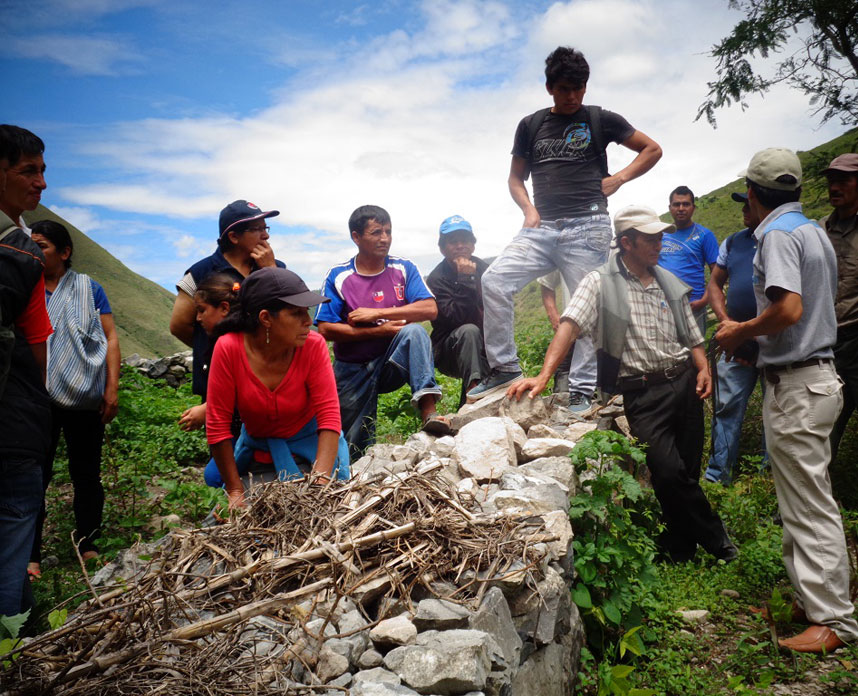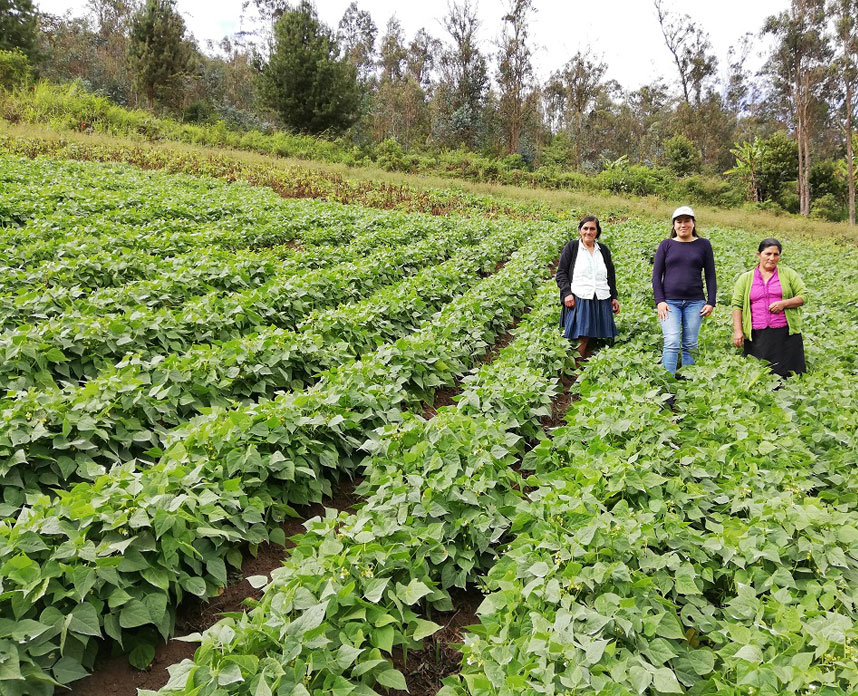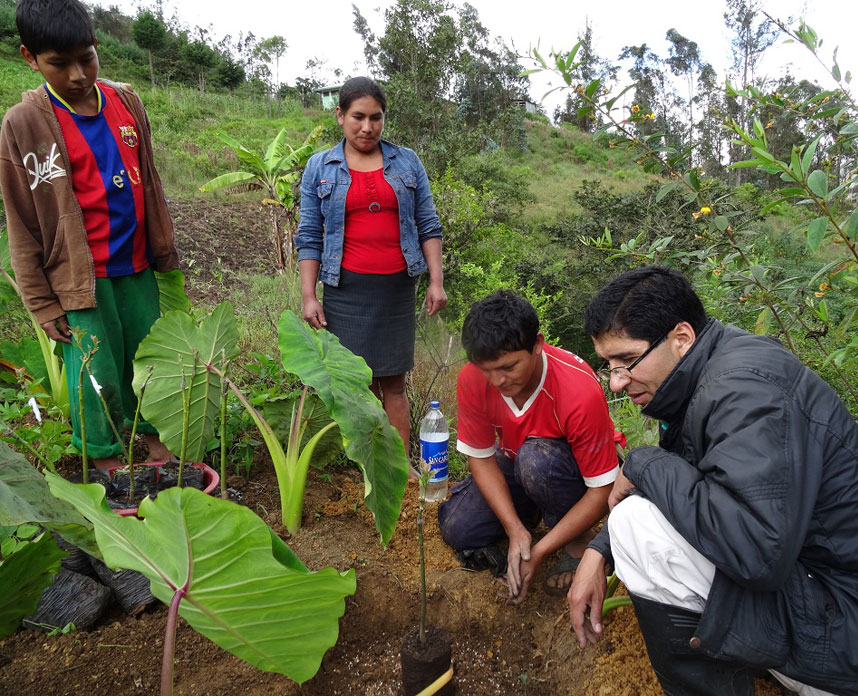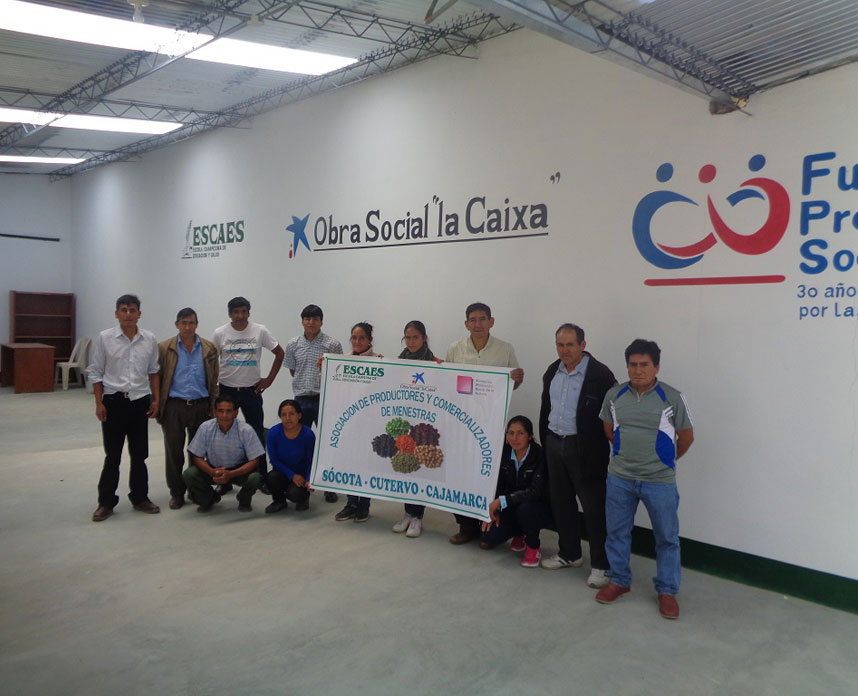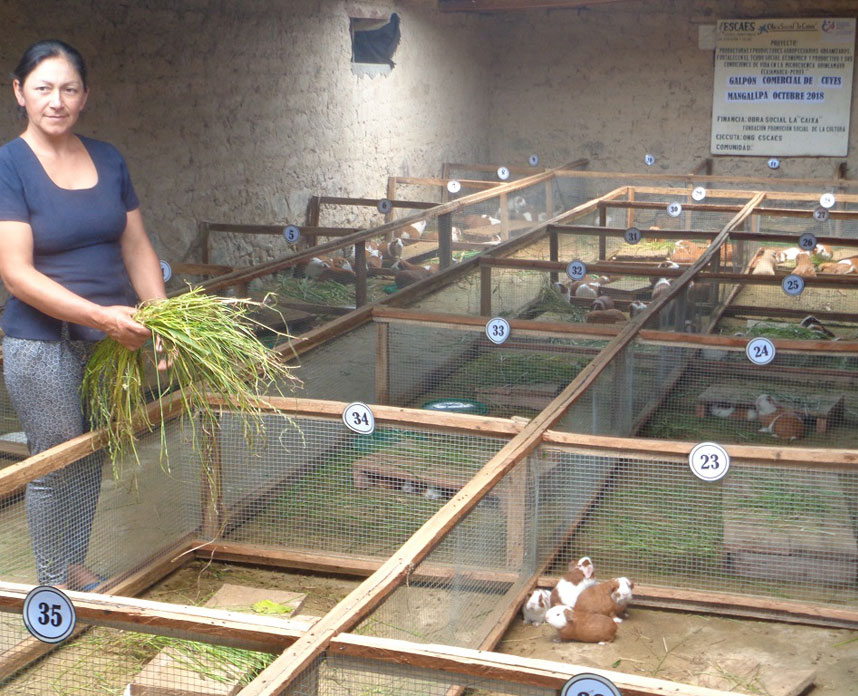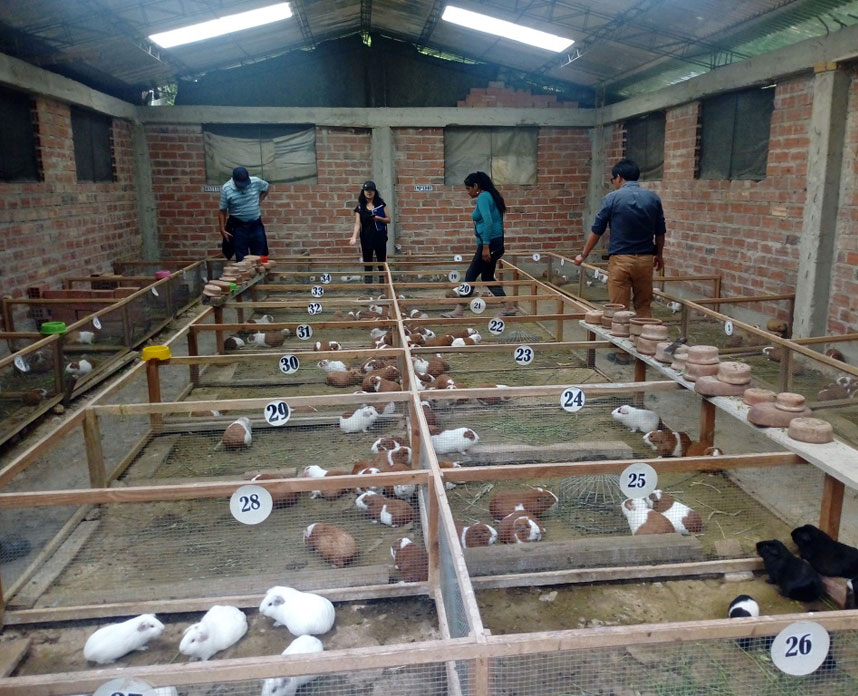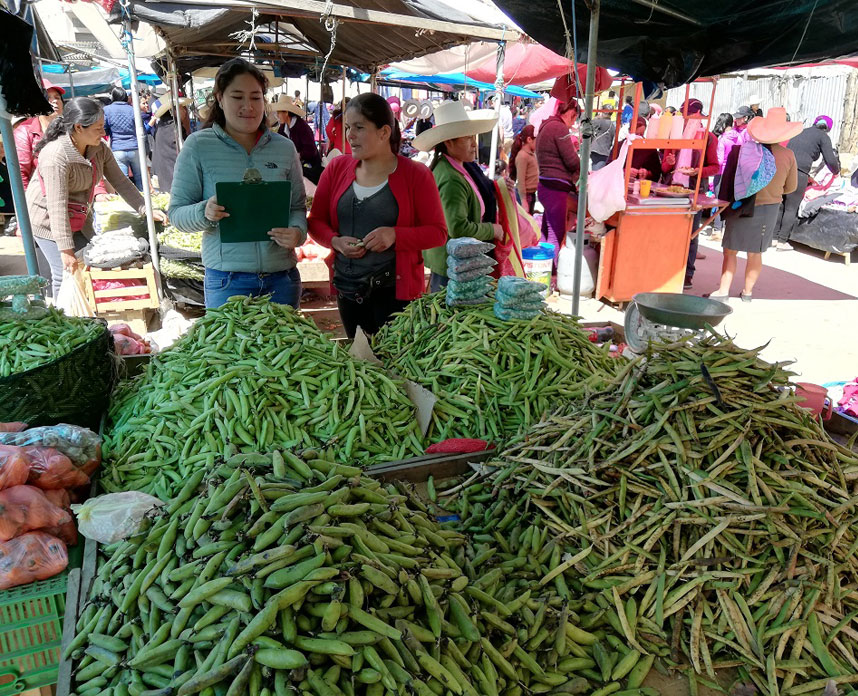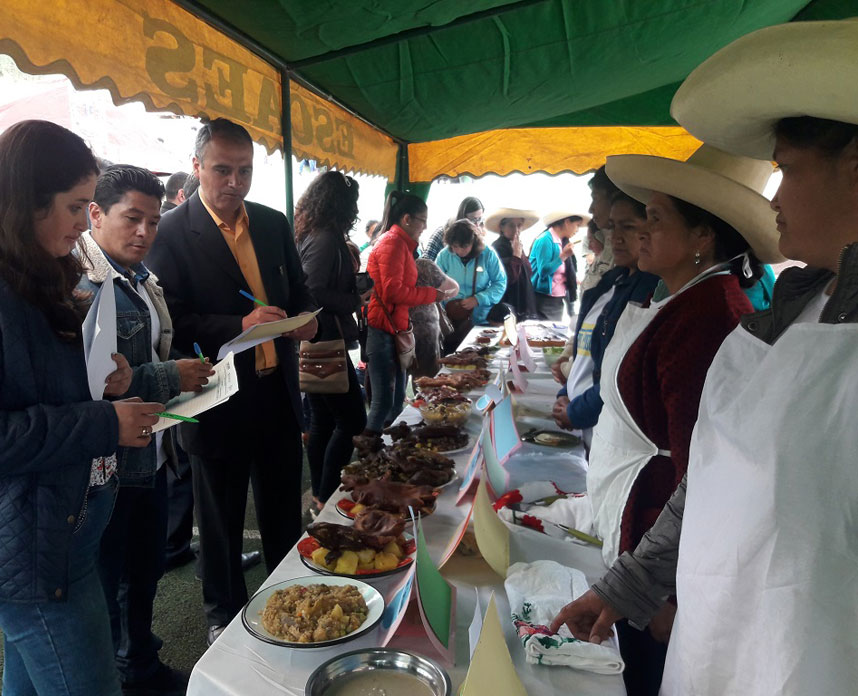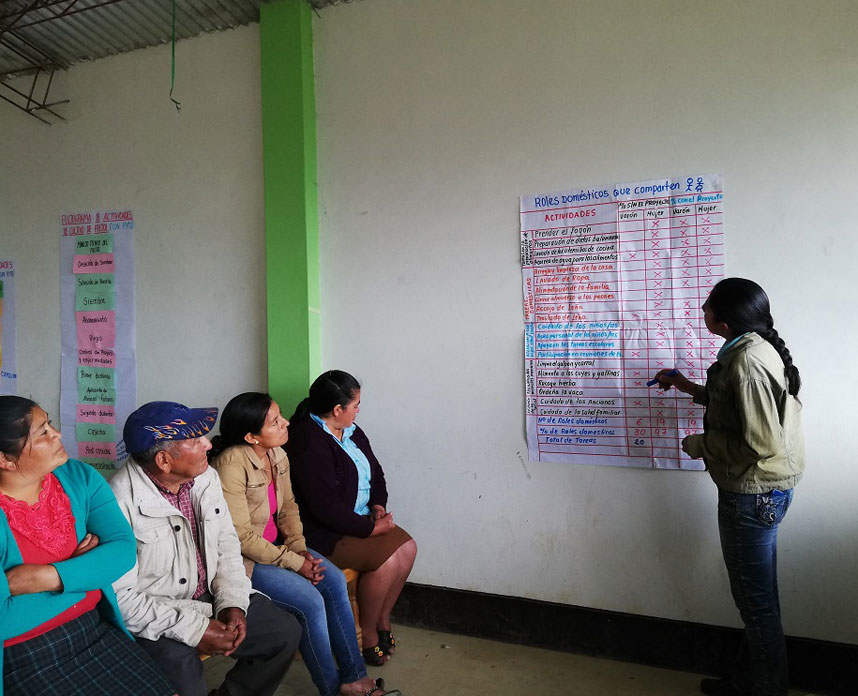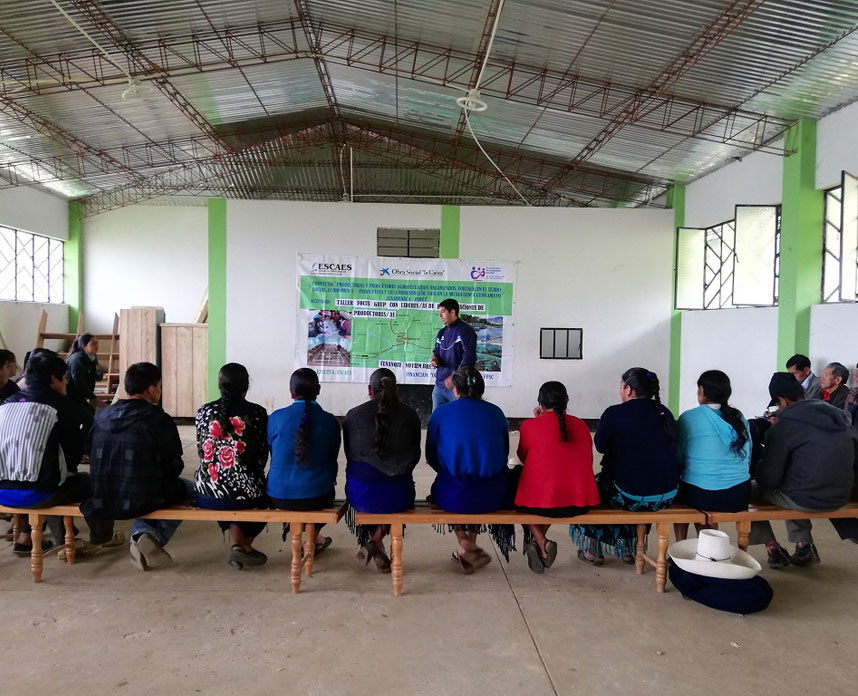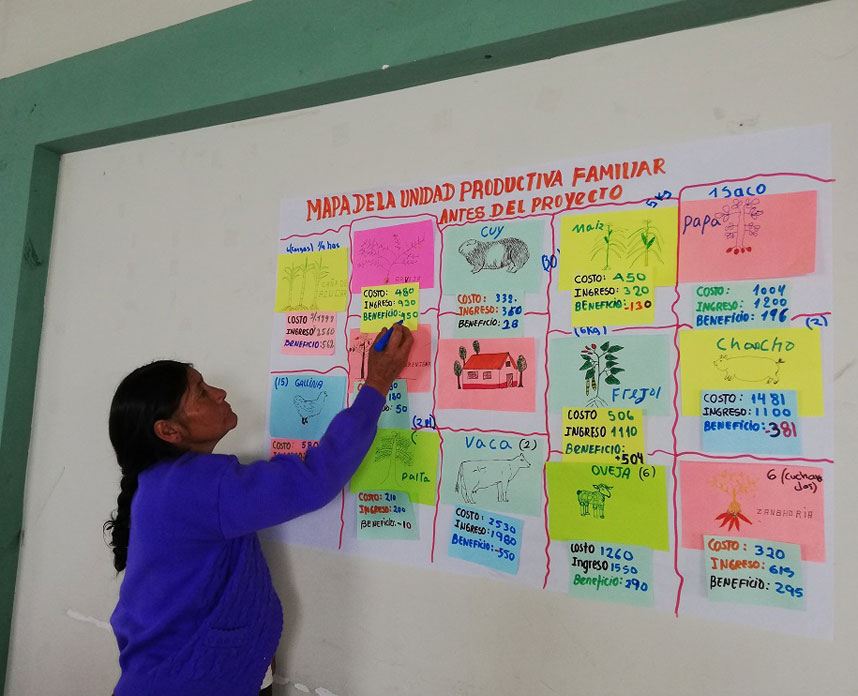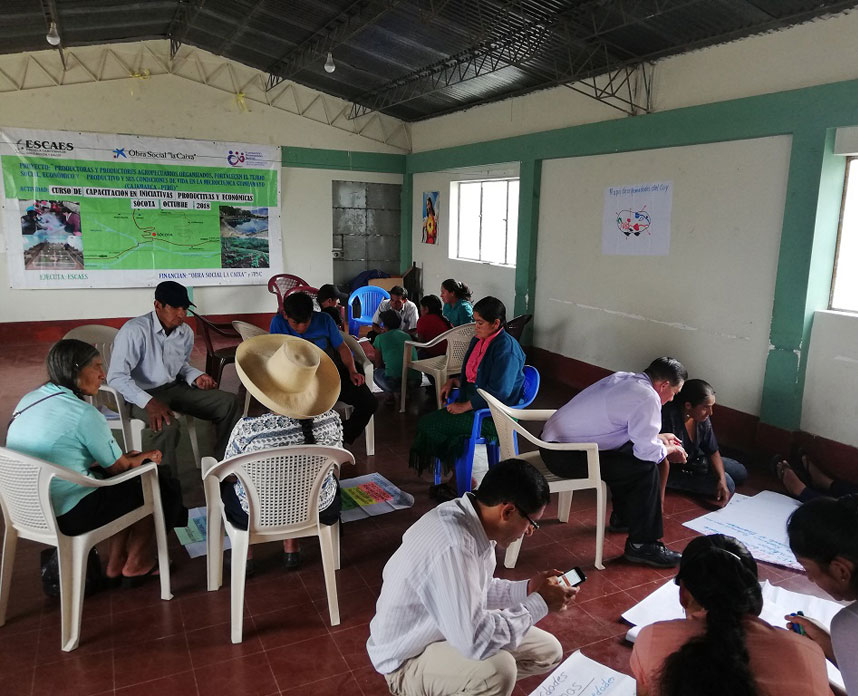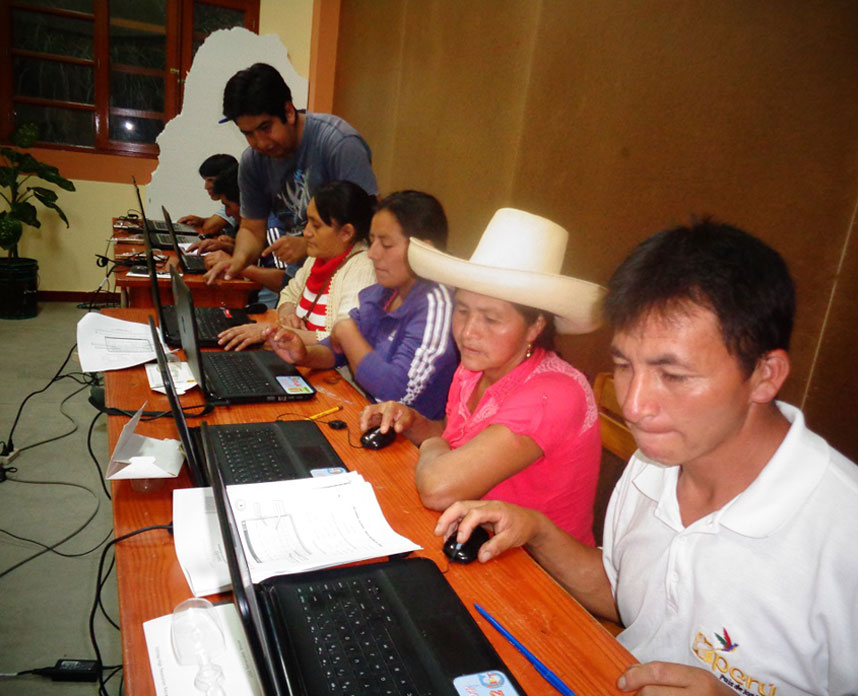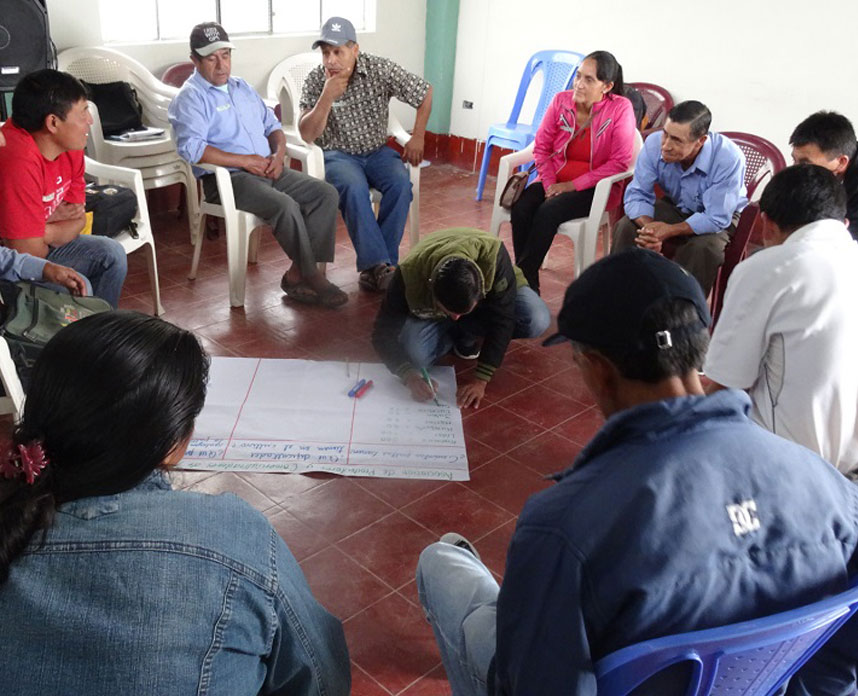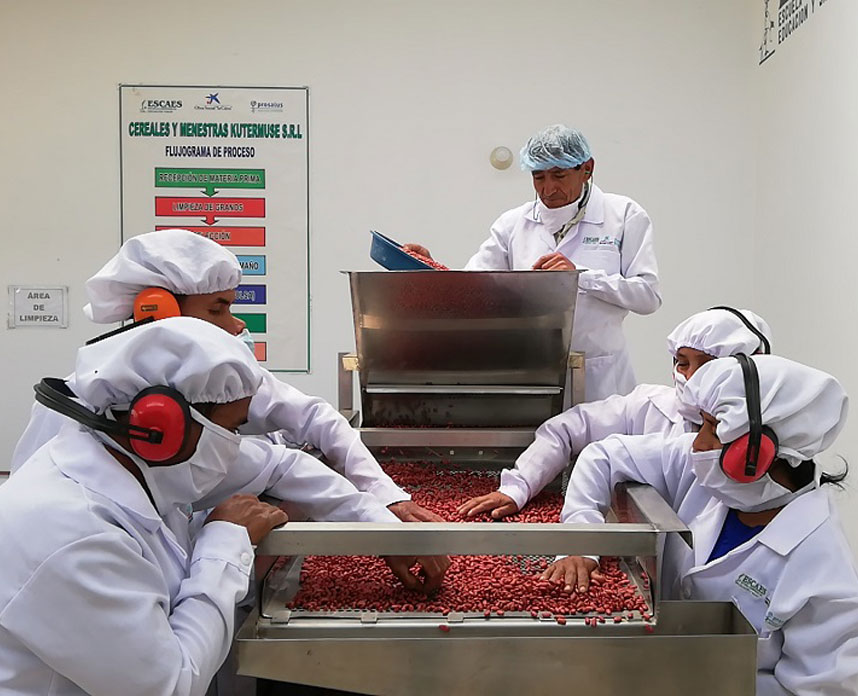The joint work organized in associations improves the living conditions of 180 families of small agricultural and livestock producers in the Guineamayo micro watershed (Cajamarca) in Peru.
For more than three years, the Social Promotion Foundation project, implemented by its local partner ESCAES and financed by Obra Social La Caixa, has directly benefited more than 800 people and indirectly to another 1,800.

The project has improved its management by strengthening its technical, organizational and leadership capacities.
Another key aspect of this improvement has been the implementation of technological innovations (use of improved seeds, irrigation systems, integrated pest management, etc.).
The best productive management is evident in higher yields of bean and avocado crops (yield per hectare doubled).
“We have managed to produce an average of 2035 Kg/ha of beans, with 2 campaigns, obtaining an average of (4070 Kg), of this total we reserve 5% for seed, 15% for family feed and 80 % we market it in an organized way. We have improved our income and our way of life.” (Gregorio, member of the Association of Producers and Marketers of Vegetables and father of 5 children).
40 hectares of Alubia and Canario variety beans and 40 hectares of Fuerte and Hass varieties of avocado have been installed.
“Before the intervention of the project, we had planted some plant of Creole avocado that produced fruits without any handling, the producers were not organized and did not give importance to this fruit tree. Now associated and in an organized way, thanks to the technical training, we have obtained improved avocado plants of the Fuerte and Hass varieties that we have planted in our plots with drip irrigation system achieving the improvement of yield and production, which it allows generating greater economic income “. (Alonzo, 39, Guineamayo, district of Socota, vice-president of the Association of Producers and Marketers of Palta).
Raising guinea pigs has also experienced a higher yield and has gone from raising 15 guinea pigs per family to 73. 30 commercial sheds of Peru Line guinea pigs have been installed.
“Especially us the women, we have improved and remarkably changed the way of life; now we have knowledge of how to make technical breeding of guinea pigs and with the material for construction and improved pastures we get a quality feed for our animals. (Maria Reyna 41 years old, community of the Union and member of the Association of Producers and Marketers of Cuyes ).
One of the objectives of the project has been to improve women’s access to technical and financial resources in social, productive and economic management, which is allowing them to participate in decision-making in the production and marketing process and improve their situation within the family and the community.
“At the beginning, it was very difficult to participate because my husband is very sexist and he did not agree and said it was going to be a waste of time; the few guinea pigs I had, I sold them in the market on Sundays and bought other things that we needed in the house. I attended the informational meeting of the project that ESCAES organized in our community without my husband knowing; I found it interesting and I thought it was an opportunity to get out of the situation we were in. With the help of my children, I was able to build my commercial shed of guinea pigs; today I have more than 200. Now my husband helps me in the cleaning and feeding of my breeding and on his own initiative he sows his crops with the manure of guinea pigs, we work in agreement and with the sale of our guinea pigs we are supporting our children in their education “. (Elvira, 35 years old, community of the Mangallpa and member of the Association of Producers and Marketers of Cuyes).
The project has promoted the organization and formalization of 3 associations of agricultural producers. The production of avocados, guinea pigs and beans is intended for self-consumption, and for the local and regional market through them:
- The Association of Producers and Marketers of “Palta” – Cutervo ASPALTA, composed of 44 male producers and 20 female producers.
- The Association of Producers and Marketers of “Cuyes” – Socota APROCCUY formed by 38 male producers and 17 female producers.
- The Association of Producers and Marketers of Vegetables – Socota conformed by male 22 producers and 39 female producers.
During the project, six gastronomic festivals have been organized to promote beans, avocados and guinea pigs in the district of Socota and in the province of Cutervo, with the active and dynamic participation of 150 members of associations of producers and marketers of vegetables, avocados and guinea pigs.
The project has promoted the installation of 30 family modules of Vermiculture for the productive management and use of earthworm humus production.
The conservation of 80 hectares of soils has also been achieved by the construction of slow-forming terraces and/or the installation of live barriers with forest species.
A center for the collection, selection, and packaging of vegetables and fruits has been created.
In addition to the program of specialization in management of profitable crops and breeding such as avocado, beans, and guinea pigs, there have been, among others, theoretical and practical training programs in soil management and recovery, in management of technified irrigation systems, in micro business management, in basic informatics and use of internet tools to find new niche markets, and training in organization, leadership and gender equity.
The project has promoted institutional strengthening and links with other stakeholders and programs in the territory, generating synergies. Thus, a coordinated activity has been carried out with eight Public Institutions and a Base Organization through commitments of interaction and frontal struggle against poverty through the signing of agreements with the Provincial Municipality of Cutervo, the District Municipality of Socota, the Sub Regional Management Cutervo, the Cutervo Local Education Management Unit (UGEL), the Pedro Ruiz Gallo National University, the Sub Regional Health Directorate (DISA), the Santa María de Cutervo Hospital, the Agrarian Agency of Cutervo, the Subprefectura district and “Rondas Campesinas”.





